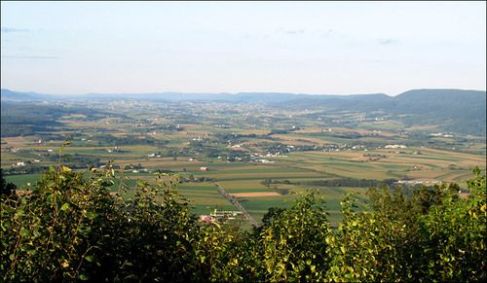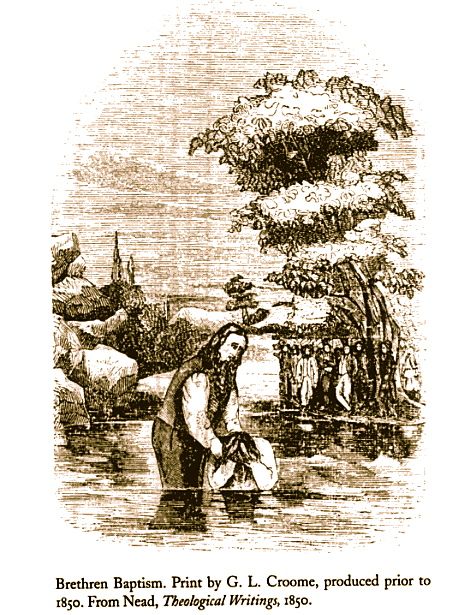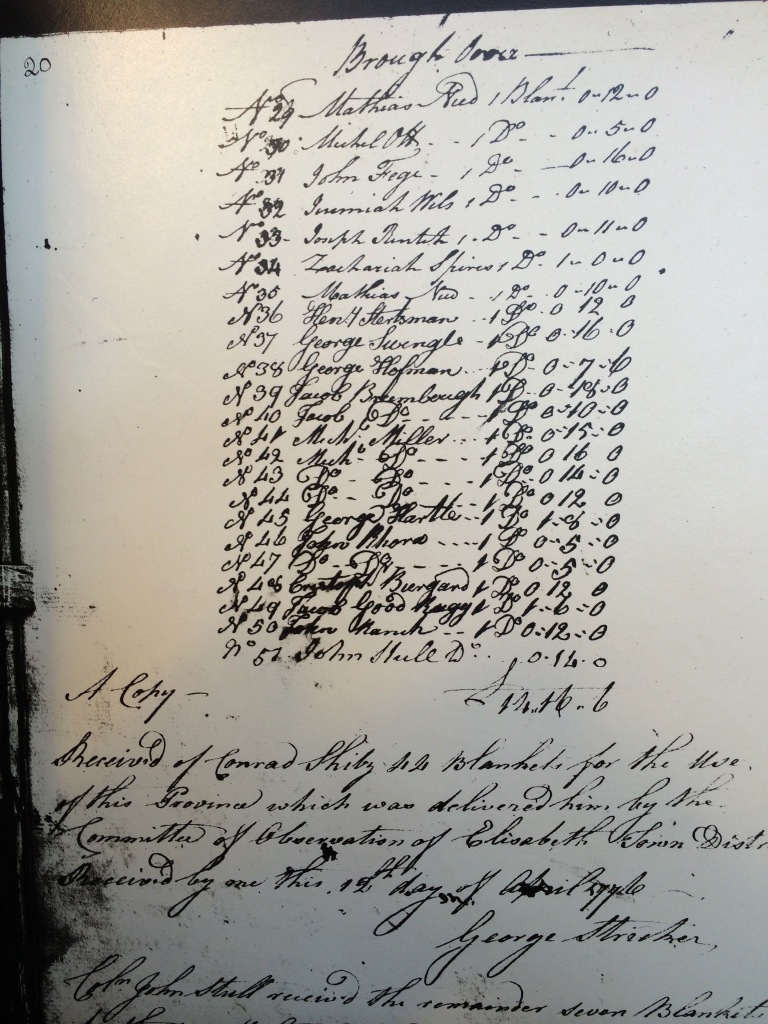Only after 2 years of research did I find that there was archived correspondence between Quaker merchant Henry Drinker and Jacob Brumbaugh and later his son Jacob, Jr. Henry had been one of twenty Philadelphia Quakers exiled to Virginia by Philadelphia authorities shortly before British Gen. William Howe arrived to occupy Philadelphia for the winter of 1777-78. Jacob first bought a land tract from Henry in 1785, then signed an agreement for another one in the early 1790s and one also in 1797, which was not completed until 1803 after Jacob Sr. had died in 1799. Jacob Jr. personally brought the last installment to Drinker’s home and breakfasted with the Drinkers in August 1803. Drinker’s wife Elizabeth Sandwith Drinker recorded that fact in her 50-year diary which is the most complete contemporary record of manners of eighteenth-century Philadelphia and is lodged at the Historical Society of Pennsylvania. 
Monthly Archives: January 2013
David Library of the American Revolution: Now Absorbed into the American Philosophical Society in Philadelphia
David Library of the American Revolution
was among the more than 40 archives and libraries in which I conducted research on Jacob Brumbaugh and the other conscientious objectors during the American Revolution.
Morrison’s Cove and Jacob Brumbaugh
Jacob purchased nearly a dozen land tracts in Morrison’s Cove, Bedford County, Pennsylvania, between 1785 and his death in 1799. Morrison’s Cove is a lush green valley between ridges of the Alleghenies which is still today largely agricultural as it was back in the late 18th century. There were many German sectarian groups there then and there still are now, along with a Brumbaugh Mountain, Brumbaugh Road, and Brumbaugh cemetery. 
What was the second language of Pennsylvania in the 1770s? Who were “Palatines” back then?

This gallery contains 1 photo.
German was the second language. About 1/3rd of those inhabiting the Pennsylvania colony before the Revolution were German immigrants. About 100,000 of them arrived over the course of the 18th century, and as they did it was announced in the newspaper, The Pennsylvania Gazette, that more Palatines were due to arrive on the next few […]
They were “conscientiously scrupulous” of bearing arms. What does that mean?
The German Baptist Brethren or Dunkers were pacifists. If you “scrupled” about something you hesitated to do it for fear that it might be morally wrong. Well, they scrupled about bearing arms. And they did not just do it because this or that armed conflict was a bad one, they did it consistently for every such conflict. They were conscientious in their scruples. Therefore, another way of phrasing it back then is that they were “conscientiously scrupulous of bearing arms.”
They thought differently than their neighbors about war. They believed very strongly that Jesus had taught them to turn the other cheek and they should pray for their enemies as much as their friends. They believed that all wars are wrong. They believed that their members should have nothing to do with preparations for war. They supported one another at barn-raising time and they supported one another when they were asked to bear arms for the future of their country. When they were asked to attend the muster of the local militia once a week on the town green, in maybe 1774 after the Boston Tea Party the December before, they refused to go. They continued refusing in 1775 and 1776. There had been exemptions from military service now for decades for those people who were conscientiously scrupulous of bearing arms– the Quakers were the most prominent because of the large part they played in founding and administering early Pennsylvania.The Moravians too had negotiated an exemption as early as 1749. The Mennonites too had been early pacifist leaders. The Mennonites had petitioned against military service in 1755. During the Revolution, the Dunkers of Maryland allied themselves with the Mennonites. They were much like the Mennonites in their plain dress and simple humility, men sporting long, untrimmed beards. 
In the run-up to the Revolution your neighbors wanted to know which side you were on? Are you with us or against us? How would these people answer those questions? The narrative of this personal and denominational struggle is the gist of the book.
What’s a “Dunker”?
People called these German Baptist Brethren “Dunkers” because of their distinct form of believer’s (adult) baptism. They believed that the only proper way to baptize a Christian was kneeling in flowing water (a creek or stream), full body immersion, three times forward, each time after answering a question about their personal experience of the acceptance of Jesus Christ as their lord and savior. Usually there were other congregants watching and the few illustrations done of the scene show a small crowd of people gathered on the river bank as the elder immerses the applicant.
The Dunkers were originally known as Neue Teufer (“new baptists” in German) in the town of Schwarzenau, Germany, where they began in 1708. In America they became known as German Baptist Brethren and in 1908 they adopted the name Church of the Brethren, although since 1870 there are eight different splinter sects. Today there are over 150,000 people who trace their spiritual heritage to the eight persons who first baptized each other in 1708 in the Eder River. 
Jacob Brumbaugh sells his grains and blankets to the Militia– a patriotic act.


Original 1780 receipt by Dr. Henry Schnebely, purchasing agent for the Continental Army, buying wheat and rye grains from his neighbors, including sectarian non-jurors– those who, for religious reasons, refused to take the oath of allegiance to the new government– such as Jacob Brumback (aka Brumbaugh). See March 8 date, the name Jacob Bromback and the “ditto” line below it. Schnebely was Brumbaugh’s immediate neighbor and also a member of the Committee of Observation. The title of the receipt reads “Retorn of Deferent Species of Grain Purchased by Henry Schnebely in Washington County by order of a Act of Assembly April the 16th 1780.” The columns are labeled for Flower (flour), wheat, rye, and corn. The Hagerstown area was a main “breadbasket” of the colonies. Though Jacob might have been a conscientious objector, and a non-juror, having sold provisions to the Continental army, one hundred twenty years later later qualified Jacob as a “patriot” in the eyes of the Daughters and Sons of the American Revolution (DAR & SAR). An interesting paradox, don’t you think?

Henry Drinker, a Quaker merchant in Philadelphia, in 1797 in correspondence with his lawyer in Frederick County, described Jacob Brumbaugh as a “Bearded German.” This is the only eyewitness description we have of Jacob. Typically, once a member of the German Baptist Brethren congregation married, he no longer shaved or trimmed his beard. So “Bearded German” was also a code phrase for a member of the German sects (Mennonite, Amish, Dunker, etc.) A congregation which was part of a denomination which “reformed” by splitting off from the larger denomination was usually referred to as a “sect” and its members as “sectarians.”
Henry Drinker, …
Clalands Contrivance
1759 survey of Jacob’s farm, Clalands Contrivance, north of Hagerstown, Maryland. Note that the shape of the farm leaves it with 44 sides! Was the surveyor crazy or were there contiguous tracts that caused the irregular shape? Probably the latter. The little triangle sticking out on the bottom, for instance, was where the original survey overlapped with an “elder survey” or one done previous in time by a neighbor, so they had to lop off that 5 acres. Jacob owned this farm from 1753 until his death in 1799. It was a grain farm and comprised over 500 acres. Courtesy Maryland State Archives where I downloaded this image for free along with images of several other parcels bought by Jacob in the 18th century. Sometimes the Internet can be wonderful! Enjoy, ask questions.
Brumbaugh was a Scout with another German immigrant, Capt. Jonathan Hager, During the French & Indian War
Jacob Brumbaugh was a member of Jonathan Hager’s scout patrol in the Maryland militia in the 1756-1757 time frame. He and Hager and Andrew Rentch also quartered (housed) soldiers during the French & Indian War and were compensated for it. There were several stories written by twentieth-century church historians who said that Jacob became a friend and nurse to Col. George Washington on the Braddock Campaign in 1755. Washington, serving merely as an aide-de-camp to General Edward Braddock, was actually very sick, sick enough to be carried in a litter for days before the British soldiers were subjected to a surprise attack by a smaller force of French and Indians near present-day Pittsburgh. Washington suffered four bullet holes in his uniform and lost two horses underneath him during the fray, but eventually garnered praise for his resourcefulness in leading a retreat. In the aftermath of the defeat on July 9, 1755, he was again ill for several days and the book goes into some of the details. Those stories about Jacob Brumbaugh’s role at that time are squarely addressed in the book.After Braddock’s defeat, for the next eight years there were nearly constant Indian attacks on the frontier in the Conococheague district of Frederick County. The illustration shows the wounding of General Braddock on July 9th. He died of his wounds July 13th and Washington oversaw his burial, which was hidden so that the Indians would not find and take his scalp. 
